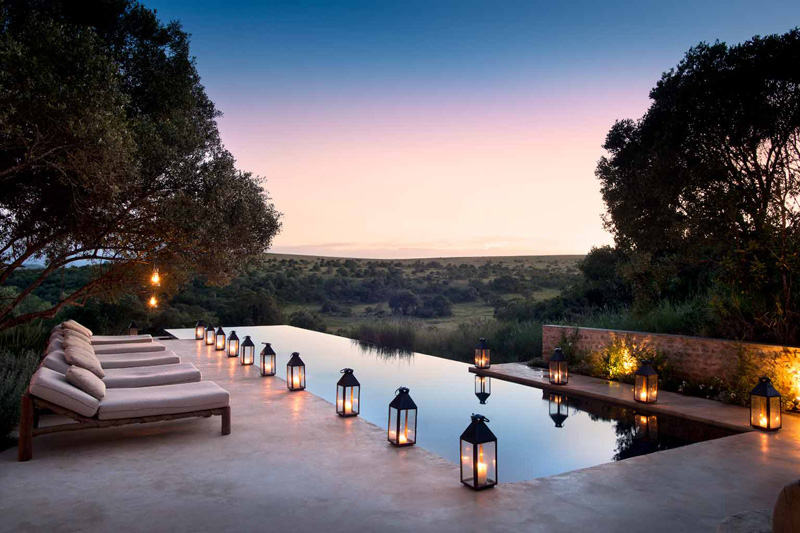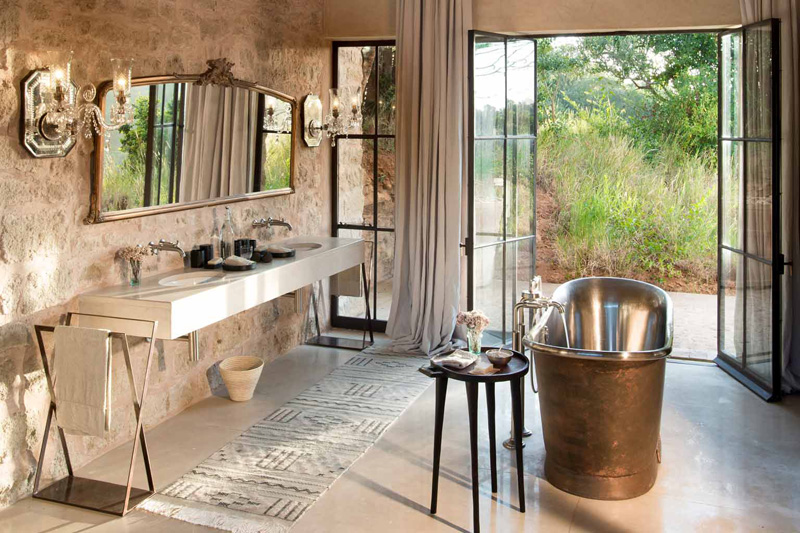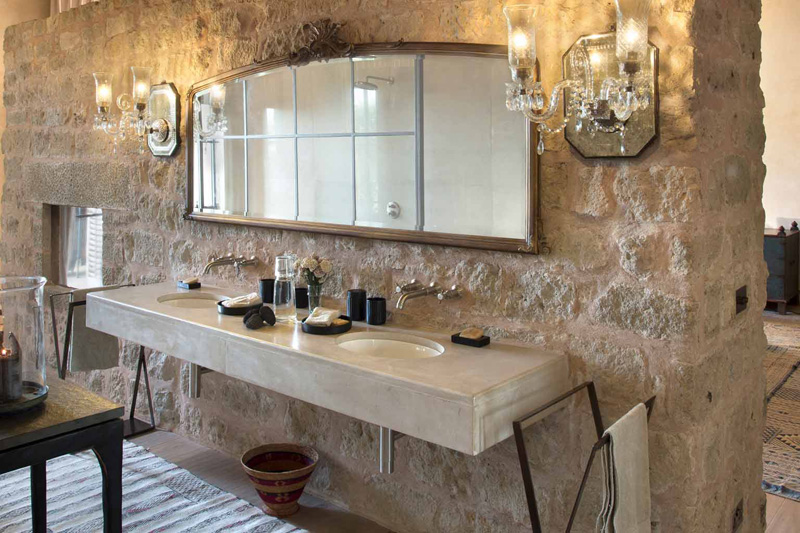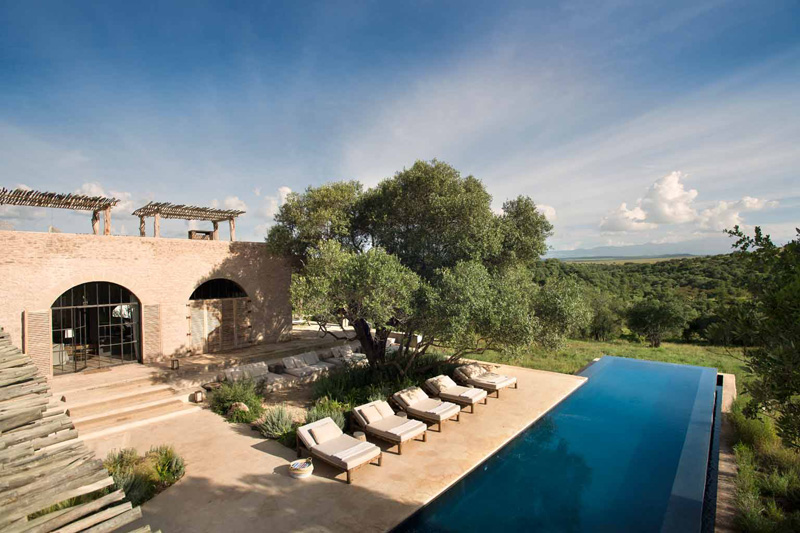Arijiju is not your average safari lodge. It’s an architectural masterpiece hewn (quite literally) into a rocky hillside of the Laikipia Plateau in the Kenyan Highlands. Miles of grassland, dotted by olive trees, stretch the distance to the horizon. Snow-capped Mount Kenya anchors the view in the distance. Adapting its name from from the Maasai word for the hill on which it stands, Arijiju truly speaks the language of the land. From the exterior, it’s difficult to tell where the walls end and the earth begins, except for a winding path designed by British garden designer Jinny Blom. Natural light cuts through the stone arches and glass windows creating suntraps in playful shapes, while shady spots serve as moments of recluse from warm summer days. Raw materials, local stone and wood, create an effortless foundation of textured walls and classic lines. The effortless and airy interior was designed by Johannesburg-based Maira Koutsoudakis, the mastermind behind North Island, a private island resort in the Seychelles. Grassed roofs camouflage the property and also help keep it insulated. With the design and construction taking over 10 years to complete, one could almost imagine that Arijiju actually grew from the land.
The 32,000 acres surrounding Arijiju safari lodge are actually part of The Borana Conservancy, a renowned anti-poaching and wildlife research operation. The landscape, though seemingly untouched by man, is traversed often by wildlife. Borana is home to zebra, giraffe, lion, elephant, and most notably, 22 endangered black rhinos who were transferred from the neighboring Lake Nakuru National Park when it reached its carrying capacity.
African rhinos are under constant threat from poachers for the illegal trade in their horns, and conservation organizations require funds to adequately protect them. According to a more detailed account from CN Traveler, in order to help raise money, the original land owner decided to lease three parcels of land to allow the development of private homes, on the understanding that the houses would be made available to paying guests, and that the profits would be fed back into conservation projects on the land. The result, is Arijiju.
Arijiju’s owners prefers to remain nameless, but their story is told through the property’s brochure. The owner and his wife once camped on Arijiju’s bare hilltop. Inspired by their stay, they set out to create a unique home space reminiscent of a childhood spent running barefoot in wild. Combining true passion for conservatism and respect for its indigenous surroundings, Arijiju stands as not only a monument of integrity, but as a role model for the future of experiential lodging.























This makes me want to pack my bags and jet to Africa ASAP